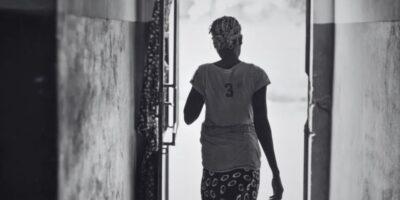Without a doubt summer is the best time to be in Haiti (says the millennial author of this text), and I am sure that you know it, too. Do you have any big summer plans? Are you planning to go on safari in South Africa? Backpacking across Europe? Or are you staying local to enjoy the country’s breathtaking waterfalls, crystal clear Caribbean beaches, and beautiful mountains?
Whatever your plans may be, memories of the summers of your childhood will rarely fade away. As we grew older, how many of us asked ourselves why those children we saw going up and down the streets carrying overweight bags of merchandise and big buckets of water for “Mant intèl” or “Mesye/Madam intèl” during the day and dressed for night classes were not as full of life as we were? I did not ask why because I already knew the answer. I was no stranger to their reality, as my mother never missed an occasion to remind me of her childhood growing up experiencing many of what these kids face on a daily basis. In Haiti, it is very common for a relative with more resources or family friend to take on the task of providing for a child born into a poorer family; this is one of the many socio-cultural traditions of the Haitian people. In a happy case, the child who is cared for is sent to school like all of the other kids in the household, they sleep in a clean room, and are fed properly. On the other hand, when a parent living in extreme poverty in a rural community sends a child away in an attempt at a better life, the story does not always end on such a positive note. Despite growing up on the same land, children in Haiti rarely enjoy equal rights. The country’s lack of resources and child/social protection programs create a disparity resulting in opposing realities. For decades, local and international NGOs have been helping Haitian children in need to gain access to free education, basic health care, and food. Due to their pressing nutritional and medical needs, other equally essential aspects of a child’s upbringing are often disregarded. After constantly hearing about my own mother’s similar childhood experiences and educating myself from articles and human rights campaigns created by other young Haitians that focused on raising awareness of the monstrosities that children in Haiti experience, I asked myself what I could do to help.
I had two options: watch every image and story pass by and carry on, or, be part of the solution. I couldn’t help but choose the latter. With the help of friends and classmates, I created Our Garden Haiti (OGH) – a free summer camp program for children who have experienced and continue to live in such conditions. The groups is composed of young girls and boys from impoverished rural communities in Les Cayes and former street boys who have been physically and emotionally abused and are now living in a safe house where they receive psycho-social and coping skills that their traumatic pasts may have deprived them of. This care is provided by Little Footprints Big Steps – OGH’s main community partner – which also manages the safehouse. These children are the ones who need such an environment the most, as they deserve to see that the world is more than just despair and broken promises.
Our Garden Haiti was selected to be represented as a “Commitment to Action” that promotes economic empowerment with a family-based approach at the 2014 and 2015 Clinton Global Initiative University, an international summit where students, university representatives, topic experts, political leaders and celebrities come together to discuss and develop innovative solutions to pressing global challenges. This summer, the objective is to provide a free summer camp primarily for former street children and girls at risk of becoming child domestic workers in the community of Pont Salomon in Les Cayes. It will take place between July and August, five days a week for four weeks. With guidance from expert staff from the Botanical Garden of Les Cayes, the children will engage in eco-friendly activities and have fun with arts and crafts. The participants will be taught the importance of entrepreneurship, financial literacy, and self-sufficiency. Through this summer camp, the children will gain skills that will allow them to take what they have learned back into their immediate community. In a country like Haiti with very little guarantee of a daily meal, teaching children living in impoverished communities the importance of self-sufficiency is as crucial as teaching them to read and write. With training in sustainable agriculture, they will learn how to take care of their land based on its capacity and their available resources. This camp will allow children to build friendships, have fun, and learn lifelong skills. Our Garden Haiti will also engage parents through weekly gatherings focused on sharing knowledge, experiences and address concerns as a community. These gatherings will also help to build stronger relationships among the families involved with the camp.
Now that you have read about the camp, you may be wondering how you can be involved. It’s easy and in order for this life-impacting program to be successful, we need you. You can make a difference in the lives of disadvantaged children and help Our Garden Haiti make a sustainable impact by clicking on the link right here.
Thank you!
Moreen Valerie Tonny
Image: Globalgiving.com







Comments